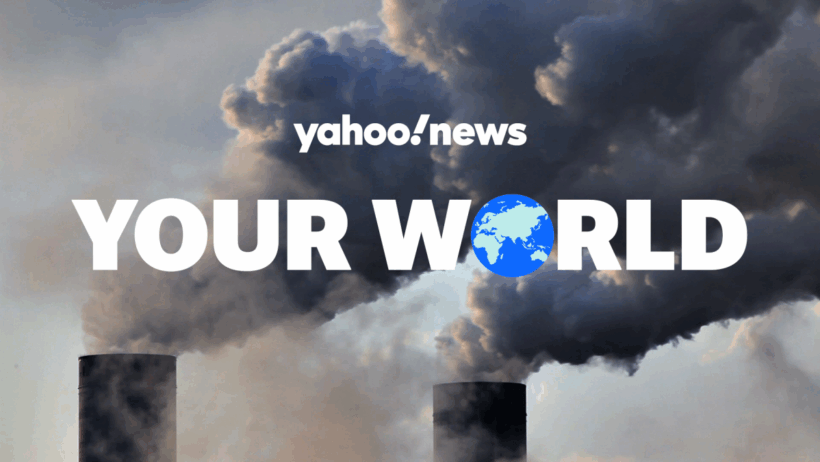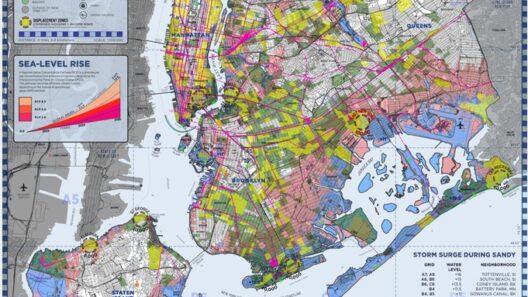The conversation surrounding climate change often ignites passionate debates among individuals and communities alike. Many point fingers at personal lifestyle choices, suggesting that individual actions—be it driving a gas-guzzling vehicle, leaving the lights on, or not recycling—are the primary culprits of environmental degradation. However, this perspective is somewhat myopic. While personal responsibility plays a role, the reality is that the biggest contributors to climate change extend far beyond the decisions of individual consumers. In examining the broader system, one uncovers an intricate tapestry of industrial, governmental, and socio-economic factors that significantly underpin the climate crisis.
One of the most prominent contributors to climate change is the energy sector, particularly the reliance on fossil fuels. The combustion of coal, oil, and natural gas for electricity, heating, and transportation accounts for over seventy percent of global greenhouse gas emissions. These energy-intensive sources not only release carbon dioxide but also spew nitrogen oxides and sulfur dioxides, which can lead to severe air pollution. The affinity for fossil fuels is often rooted in systemic factors—political lobbying by energy corporations, government subsidies favoring conventional energy sources, and a lack of investment in renewable energy technologies. Transitioning to sustainable energy—like solar, wind, and hydroelectric—could mitigate these emissions, yet the existing infrastructure and market mechanisms slow momentum for transformation.
A significant driver of climate change is also deforestation, particularly in the tropics. Forests act as formidable carbon sinks, sequestering vast amounts of carbon dioxide. However, the demand for land—whether for agriculture, logging, or urban expansion—catalyzes widespread deforestation. Agricultural expansion is a leading cause, as commodities like beef, palm oil, and soy drive the destruction of vital forests and ecosystems. The issue is compounded by global consumer habits, where the insatiable demand for these products perpetuates ecological destruction far from the consumers themselves. Consequently, initiatives focusing solely on responsible consumption often overlook the entrenched systems that dictate land use and agricultural practices.
Aside from direct emissions and land use alterations, industrial processes are another silent yet impactful contributor. Manufacturing, particularly in sectors such as cement, steel, and chemical production, generates a considerable amount of greenhouse gases. The push for efficiency and cost-effectiveness often overshadows environmental considerations. In many cases, industries operate under outdated regulations and contribute massive amounts of pollutants. Increasing awareness and push for cleaner production techniques could significantly alter the environmental footprint of these sectors, but systemic change is often impeded by vested interests clinging to legacy methods.
Additionally, the global transportation sector plays a pivotal role in exacerbating climate change. The international freight industry, which includes shipping and air transport, relies predominantly on fossil fuels. The global economy’s vast interconnectedness means that goods often travel thousands of miles from producer to consumer. Transportation emissions contribute significantly to the atmospheric carbon load, and while biofuels and electric vehicles emerge as potential alternatives, widespread adaptation remains limited. This delay in embracing sustainable practices reflects a broader reluctance to alter foundational economic structures and practices.
The reality of climate change is also deeply intertwined with environmental justice. Vulnerable populations, particularly in developing countries, are disproportionately affected by climate-related disasters—from rising sea levels to unpredictable weather patterns. Industrialized nations often bear a historical responsibility for greenhouse gas emissions, yet the repercussions of climate change manifest more severely in regions that contribute the least to the problem. This injustice intensifies the burden on communities with fewer resources to adapt to changes, illustrating the complex moral landscape intertwined with environmental degradation.
Moreover, agriculture—while essential for feeding a growing global population—also emerges as a significant contributor to climate change. Intensive farming practices, particularly those reliant on synthetic fertilizers and pesticides, not only emit greenhouse gases but also degrade soil health and biodiversity. Livestock farming, especially cattle, is notorious for generating methane, a potent greenhouse gas. There is a crucial need for innovative agricultural practices that prioritize sustainability, such as regenerative farming and permaculture, which can improve yields while also mitigating climate impact.
As cities continue to grow, urbanization itself becomes both a challenge and an opportunity in the context of climate change. Urban areas concentrate resources and populations but also face heightened emissions due to transportation and housing demands. The development of green cities—emphasizing public transport, green spaces, and sustainable architecture—puissance the potential to reduce overall carbon footprints. However, much like other systemic challenges, urban planning must take historical context, socio-economic factors, and existing infrastructure into account.
In summary, while individual choices contribute to climate change, they exist within a broader framework of institutional, industrial, and societal factors that drive environmental degradation. The most significant contributors to climate change extend far beyond personal responsibility. Addressing climate change necessitates an understanding of the interconnected web of factors, necessitating systemic reforms at every level—from governmental policies to corporate practices—to forge pathways toward a sustainable future. Going forward, it is imperative that individuals educate themselves on these multi-faceted issues, advocate for comprehensive policies, and support initiatives that align with a more sustainable and equitable world.







